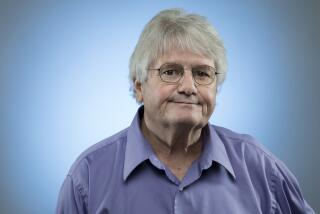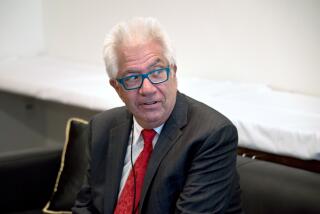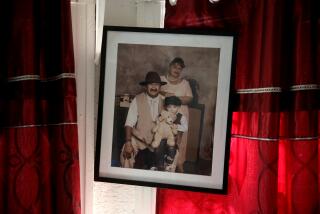Louis B. Fleming dies at 85; one of Los Angeles Times’ first foreign correspondents
- Share via
Louis B. Fleming, who was one of The Times’ first foreign correspondents and established bureaus for the newspaper at the United Nations and in Rome, died Sunday at his Pasadena home after a brief illness, said a daughter, Leni Fleming. He was 85.
He joined The Times as a general assignment reporter in 1960 and two years later opened the U.N. bureau as the newspaper was expanding “coverage and news research at all levels,” according to a 1962 Times article.
In 1968, Fleming moved to Rome to restart a bureau that had been dormant for years and ran it until 1971. At first, he split his time between Rome and Israel, where he helped cover conflicts in the Middle East.
While in Rome a second time, from 1977 to 1982, he covered the 1978 deaths within weeks of each other of Pope Paul VI and Pope John Paul I, “whose humor, warmth and informality had captured the attention of the world during a brief, 34-day reign,” Fleming wrote.
“He was everything you would hope to have in a foreign correspondent,” said Robert W. Gibson, a former Times foreign editor. “He was undaunted by challenges. He was not only intelligent, he was a man of grace and charm who managed to develop sources that would open up to him.”
Louis Brown Fleming and his twin brother John were born April 16, 1925, in Pittsburgh, the youngest of four children of Thomas Fleming, a civil engineer, and his wife, Margaret.
While in the Navy Reserve from 1943 to 1946, Fleming served in the U.S. occupation force in Japan.
At Stanford University, he earned a bachelor’s degree in 1947 after double-majoring in social science and social thought.
Fleming began his newspaper career at the San Gabriel Sun in 1947 and also worked for the Pomona Progress-Bulletin and the Pasadena Star-News.
As a fellow of the American Political Assn., he worked for members of Congress in 1954. He then became a news service director for the United Presbyterian Church and freelanced as an Africa-based writer before joining The Times.
“In complex situations, he was very good at quickly sorting out what happened,” Gibson said. “His analysis was just as strong as his reporting, and he was recruited to be an editorial writer.”
In 1971, Fleming was named chief editorial writer of The Times. Except for a five-year stint in Rome, he remained with the editorial pages until retiring in 1990.
With Dr. James N. Yamazaki, he co-wrote “Children of the Atomic Bomb: An American Physician’s Memoir of Nagasaki, Hiroshima and the Marshall Islands” (1995).
“He was tender and gentle,” said his daughter Leni of Silver Lake, “but always stood up strongly for what he believed in.”
In addition to his daughter and brother John of Aliso Viejo, Fleming is survived by his wife of 63 years, Jean Tarr Fleming; three other children, Mary Kowalski of DeKalb, Ill., Sarah Fleming of Tomales, Calif., and Louis B. Fleming Jr. of Pasadena; 11 grandchildren; and three great-grandchildren.
A memorial service will be held at 3:30 p.m. April 9 at All Saints Episcopal Church, 132 N. Euclid Ave., Pasadena.
More to Read
Sign up for Essential California
The most important California stories and recommendations in your inbox every morning.
You may occasionally receive promotional content from the Los Angeles Times.











